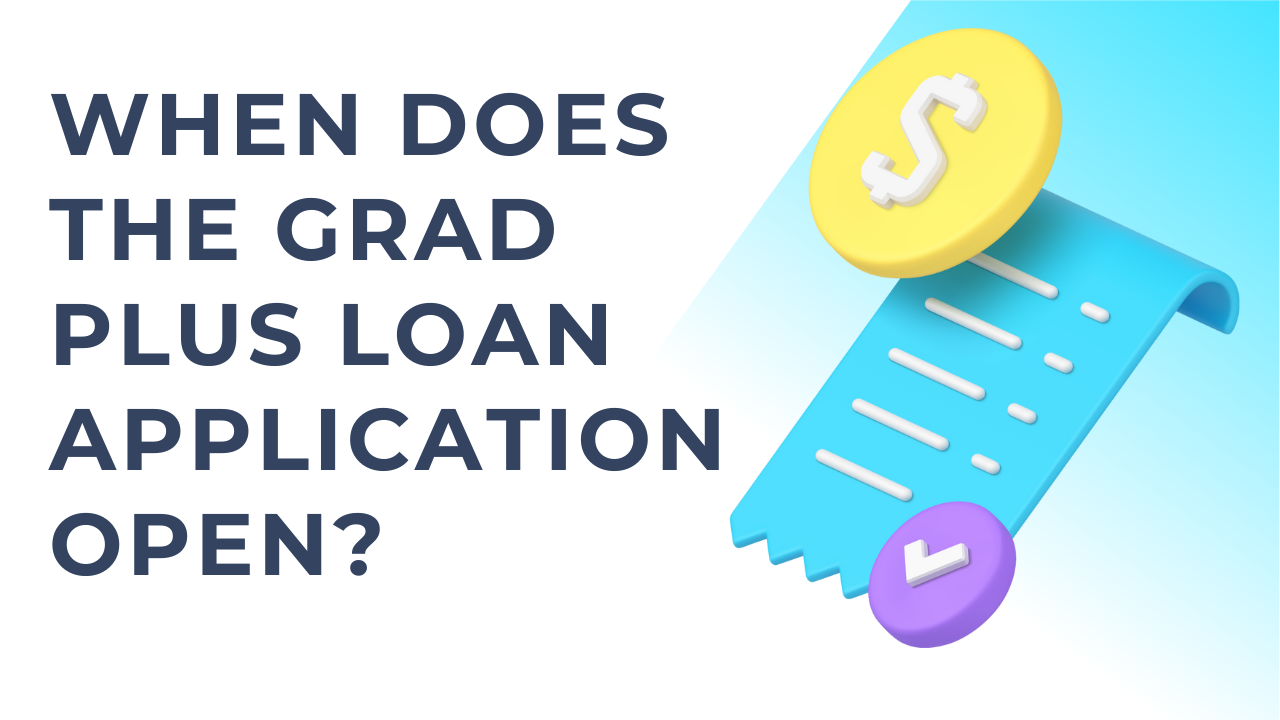Introduction
Do You Have to Apply for Student Loans Every Year?: Student loans are an important aspect of financing higher education for many students. Understanding the intricacies of student loan applications is essential to ensuring you have the necessary funds each year. This guide will explore whether you need to take out student loans annually, the processes involved, and how to manage your student loans effectively.
Understanding student loans
Definition and purpose
Student loans are money borrowed to cover educational expenses, including tuition, fees, books, and living costs. These loans must be repaid with interest, so it is essential to understand their terms and conditions.
Types of student loans (federal or private)
There are two main types of student loans:
- Federal student loans: Offered by the government with fixed interest rates and flexible repayment options.
- Private Student Loans: These are offered by banks, credit unions, and other private lenders with variable interest rates and terms based on creditworthiness.
Annual student loan applications
Do you need to apply every year?
Yes, students typically must apply for student loans each academic year to ensure continued funding. This annual process helps evaluate any changes in financial needs and academic progress.
The difference between initial application and renewal
The initial application determines your eligibility and financial need, while renewal applications update your information and re-evaluate your financial situation.
Federal student loans
FAFSA Overview
The Free Application for Federal Student Aid (FAFSA) is the primary form used to apply for federal student aid, including grants, work-study, and loans.
Annual FAFSA requirements
Students must submit a new FAFSA each year to determine their eligibility for federal aid. The form will be available on October 1 for the following academic year.
Renewal process and deadlines
Renewing the FAFSA involves updating information from the previous year. The federal deadline is June 30, but state and institutional deadlines may vary.
Private student loans
Private loan application process
Applying for private student loans involves choosing a lender, submitting a detailed application, and undergoing a credit check.
Renewal or new application requirements
Unlike federal loans, private loans may not require a new annual application. However, students may need to reapply if they are seeking additional funds or if the terms of the original loan change.
Factors affecting annual orders
Changes in financial situation
Any changes in the financial situation of you or your family may affect your eligibility for a student loan, requiring annual updates to your application.
Academic progress and eligibility
Maintaining Satisfactory Academic Progress (SAP) is necessary to continue receiving student loans. Failure to meet these criteria could affect your eligibility.
Loan and payment limits
Federal student loans have annual and aggregate limits. Understanding these limits is crucial to planning your finances throughout your academic career.
How to Apply for Federal Student Loans
A step-by-step guide to completing the FAFSA
- Create an FSA ID: Used to access and sign the FAFSA.
- Gather the necessary documents: Social Security number, tax returns, bank statements, etc.
- Complete the FAFSA form: Enter the required information accurately.
- Submit form: Submit online and save the confirmation page.
- Review your Student Aid Report (SAR): check for errors and make corrections if necessary.
Important documents and required information.
- Social Security number
- Federal tax returns and W-2s
- Bank statements and investment records.
- FSA ID
Common mistakes to avoid
- Missing deadlines
- Provide incorrect information
- Do not sign the form
How to Apply for Private Student Loans
Choose a lender
Research different lenders to find the best interest rates and terms. Consider factors such as payment options and customer service.
Application process and required documents.
- Pre-approval: Some lenders offer pre-approval to verify your eligibility.
- Complete Application: Submit a detailed application including personal and financial information.
- Credit Check: Lenders will assess your creditworthiness.
Tips for getting approved
- Maintain a good credit score
- Apply with endorsement if necessary
- Compare multiple offers to find the best terms
Understanding loan renewal
The difference between renewal and new applications
Renewal involves updating existing information, while new applications require all information to be submitted from the beginning.
What happens if you miss the renewal deadline?
Failure to meet the deadline may result in loss of eligibility for federal aid for that academic year. It is essential to be aware of all deadlines.
Financial aid packages
How are financial aid packages determined?
Financial aid packages are based on information from your FAFSA, taking into account Expected Family Contribution (EFC), cost of attendance, and available funds.
The role of student loans in financial aid packages
Loans are often an important part of financial aid packages and help bridge the gap between scholarships, grants, and personal contributions.
Annual review and adjustment of aid packages
Financial aid offices review and adjust packages annually based on updated FAFSA information and changes in financial need.
Impact of academic performance
Satisfactory Academic Progress (SAP) requirements.
Maintaining SAP is essential for continued eligibility. This includes meeting GPA requirements, completing a certain percentage of credits, and progressing toward a degree.
Consequences of non-compliance with SAP
Failure to comply with SAP standards may result in loss of financial aid. Students can appeal and, if approved, are placed on probation.
How to regain eligibility
Improve academic performance, meet with a counselor, and perhaps turn to the financial aid office to regain eligibility.
Multiple loan management
Consolidation options
Loan consolidation combines multiple federal loans into one loan, making repayment easier. This may reduce monthly payments but may extend the payment term.
Strategies for managing multiple loan payments
- Create a budget
- Use automatic payments to avoid missing deadlines
- Consider income-based payment plans
Benefits and disadvantages of monotheism
Benefits include simplified payments and potentially lower interest rates. Disadvantages may include the borrower’s loss of some interest and longer repayment periods.
Payment plans and options
Payment Plan Summary
- Standard amortization: fixed payments over 10 years.
- Graduated Payments: Payments start low and increase over time.
- Income-Based Repayment (IDR): Payments based on income and family size.
Choose the right plan
Consider your financial situation, career path, and long-term goals when choosing a payment plan.
Impact on future loan applications
Choosing an IDR plan may make payments easier to manage, but it may extend the payment period, which will affect your financial planning.
Loan Forgiveness Programs
Types of Loan Forgiveness Programs
- Public Service Loan Forgiveness (PSLF)
- Teacher Loan Forgiveness
- Income-Based Payment Forgiveness
Eligibility Requirements
Each program has specific eligibility criteria, which often include working in an eligible public service position and making a certain amount of payments.
Application process and timelines
Learn the application process and make sure you meet all requirements to apply for loan forgiveness.
Common challenges and solutions
Common problems faced by students
- Loan amounts are high
- Multiple loan management
- Navigate complex application processes
Practical solutions and resources
- Seek financial advice
- Use loan calculators to plan repayment
- Stay informed of the terms and conditions of the loan.
Seek professional financial advice
Consult your financial advisors or your school’s financial aid office for guidance and personal support.
Expert views
Quotes from financial aid experts
“Understanding the annual student loan application process is critical to maintaining your eligibility and securing the funds you need for your education.” -Jane Doe, Financial Aid Counselor
Tips on managing student loans
“Create a budget, stay organized and explore all the payment options available to you. Early planning can alleviate long-term financial stress.” – John Smith, Financial Advisor
Forecasts for future student loan policies
Experts anticipate potential changes in student loan policies, including more favorable repayment options and expanded loan forgiveness programs.
FAQs
Do I have to reapply for student loans every year?
Yes, for federal student loans, you must file the FAFSA each year. Private loans can vary depending on the lender.
What documents do I need to apply for student loans?
You’ll typically need your Social Security number, tax returns, bank account statements, and other financial documents.
How does my credit score affect my private student loan application?
A higher credit score can improve your chances of approval and help you get better interest rates.
Can I apply for student loans mid-year?
Yes, you can apply for student loans mid-year, but availability of funds may be limited.
What happens if I don’t renew my FAFSA on time?
You may lose eligibility for federal aid for that school year, so it is important to meet the deadlines.
Conclusion
Navigating the student loan application process can be difficult, but staying informed and proactive is key. Apply annually, maintain satisfactory academic progress, and explore different repayment options to effectively manage your loans. Stay informed of policy changes and seek professional advice when necessary to ensure a smooth and successful academic journey.



